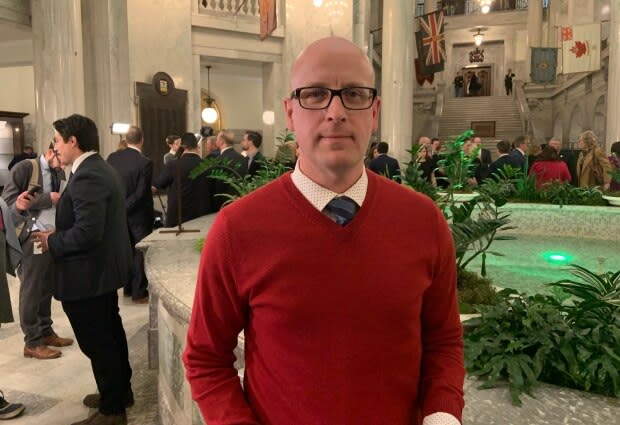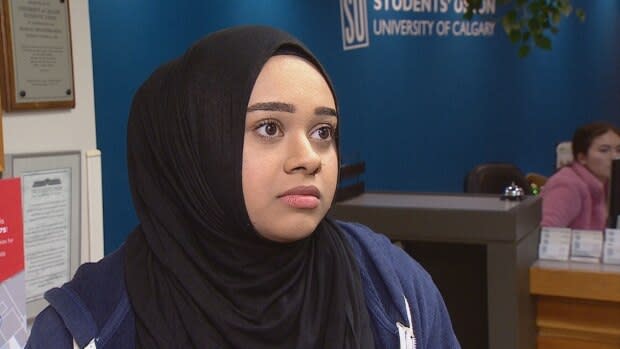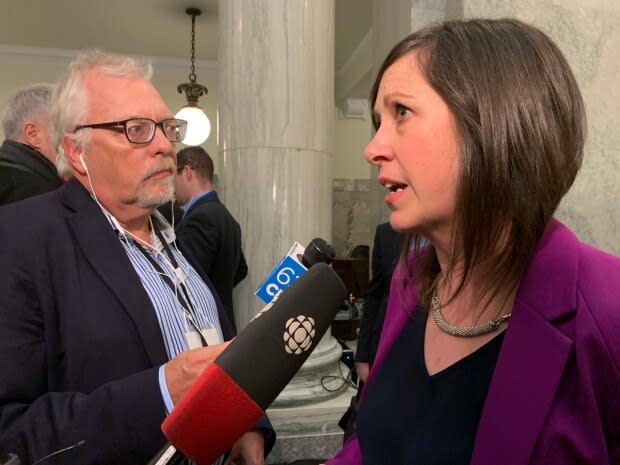Budget 2020: School boards expected to dip into reserves to pay for operations
Alberta school boards are expected to dip into their reserves to pay for a portion of their operational costs as provincial funding for K-12 education remains flat in the 2020 budget.
The budget allocates $8.322 billion for school operating expenses, but $681 million will be coming out of school board reserves and own-source revenues.
Own-source revenue is money generated by the schools themselves, through things like fundraising initiatives or facility rentals.
The government-funded portion of the education budget is virtually unchanged, from $7.218 billion in the 2019 budget to $7.209 billion in 2020.
The total operational budgets for K-12 education will decrease in the next two budgets. The targets are set at $8.247 billion for the 2021-2022 and 2022-23 school years.
"We're maintaining funding," said Finance Minister Travis Toews. "We know that we can deliver education in a more efficient manner."
The budget also estimates that school boards will reduce their staffing levels in the next school year.
A total of 138 teachers, referred to as certificated staff, are expected to not be replaced, and non-certificated jobs are projected to be reduced by 106.
Jason Schilling, president of the Alberta Teachers' Association, said the budget creates a lot of concerns for teachers.
"I'm disappointed with what this government has put forward with this budget," said Schilling. "I think that, once again, it fails to address the needs that we're seeing in our classrooms across the province. We're worried about class size, we're worried about funding towards students with special needs."
Schilling added that school boards have already been dipping into their reserves since the last budget and may not be able to pay more.
That concern was echoed by Calgary Catholic School District chair Mary Martin.
"Budgets that are based on continued use of drawdown of reserves are not sustainable in the long haul," she said.

But, Bevan Daverne president of the College of Alberta School Superintendents (CASS), said within the context of Alberta's financial situation, the government prioritized education in the budget.
"We've never been in that position before where we've been able to look to three, four years down the road. We're always in a situation where we're looking at funding for next year," he said.
"Certainly as we look at this funding for next year it's it's better in many ways than some of the assumptions that were out there…I think all districts are realizing an increase in funding the 20-21 year over the 19-20 year."
Post-secondary funding cut
Post-secondary education funding, which is delivered through Campus Alberta grants, is reduced by six per cent in the 2020 budget. That's following a five per cent cut in the 2019 budget.
And, the Council of Alberta University Students, say they're gravely concerned by these continued cuts.
"We were told the budget wouldn't be balanced on the backs of students, but what we are seeing here is exactly that," said CAUS chair, Sadiya Nazir.

Advanced Education's operating budget is $5.1 billion in 2020-21, down from $5.5 billion in 2019-2020.
"We need transformation, certainly, in the cost of delivering advanced education in the province," said Toews.
"Campus Alberta grants will be declining. At the same time, we are also, through regulatory means, freeing up our post-secondary institutions to be entrepreneurial and raise own-source revenues."
This budget enacts the first phase of the government's performance-based funding model, tied to outcomes established by the province.
Post-secondary institutions are expected to use their own-source revenues and reserves to fund 46 per cent of their operating costs. That proportion is projected to increase to 47 and 48 per cent in the next two budgets.
New K-12 funding model
The province is implementing its new K-12 Funding and Assurance Model for the next school year.
The model includes a targeted grant for governance and system administration, where funding will be tied to specific outcomes.
Education costs have risen by 80 per cent in recent years, Toews said, while enrolment increased by 50 per cent.
"That's why the Education Minister came out with a new funding model that ensure that maximum resources get in the classroom on the frontlines," he said.
"That's ultimately how we're going to deal with enrolment growth going forward."

Trisha Estabrooks, chair of the Edmonton Public School Board, said the new funding model means large urban districts with growing student populations will always fall behind.
"You know we will constantly be looking in the rearview mirror. We'll never receive funding adequate funding for the kids that are currently in our classes," said Estabrooks. "And so although we may see a slight increase in our budget compared to last year it will not take into account the tremendous growth that we continue to experience at Edmonton Public Schools."
Student enrolment is forecasted to continue to increase by 2.2 per cent or 15,000 students per year.
The new funding model also changes the allocation of funding for young children with special needs.
The Program Unit Funding, which follows children through early education, will no longer apply to kindergarten students.
Instead, the funding will be rolled into the new Specialized Learning Support grant, which allocates money in a general envelope for the entire school.
The amount of grants available to school boards will also be reduced from 36 to 15, a change that is intended to reduce reporting requirements and increase flexibility to make decisions without the intervention from the province.


